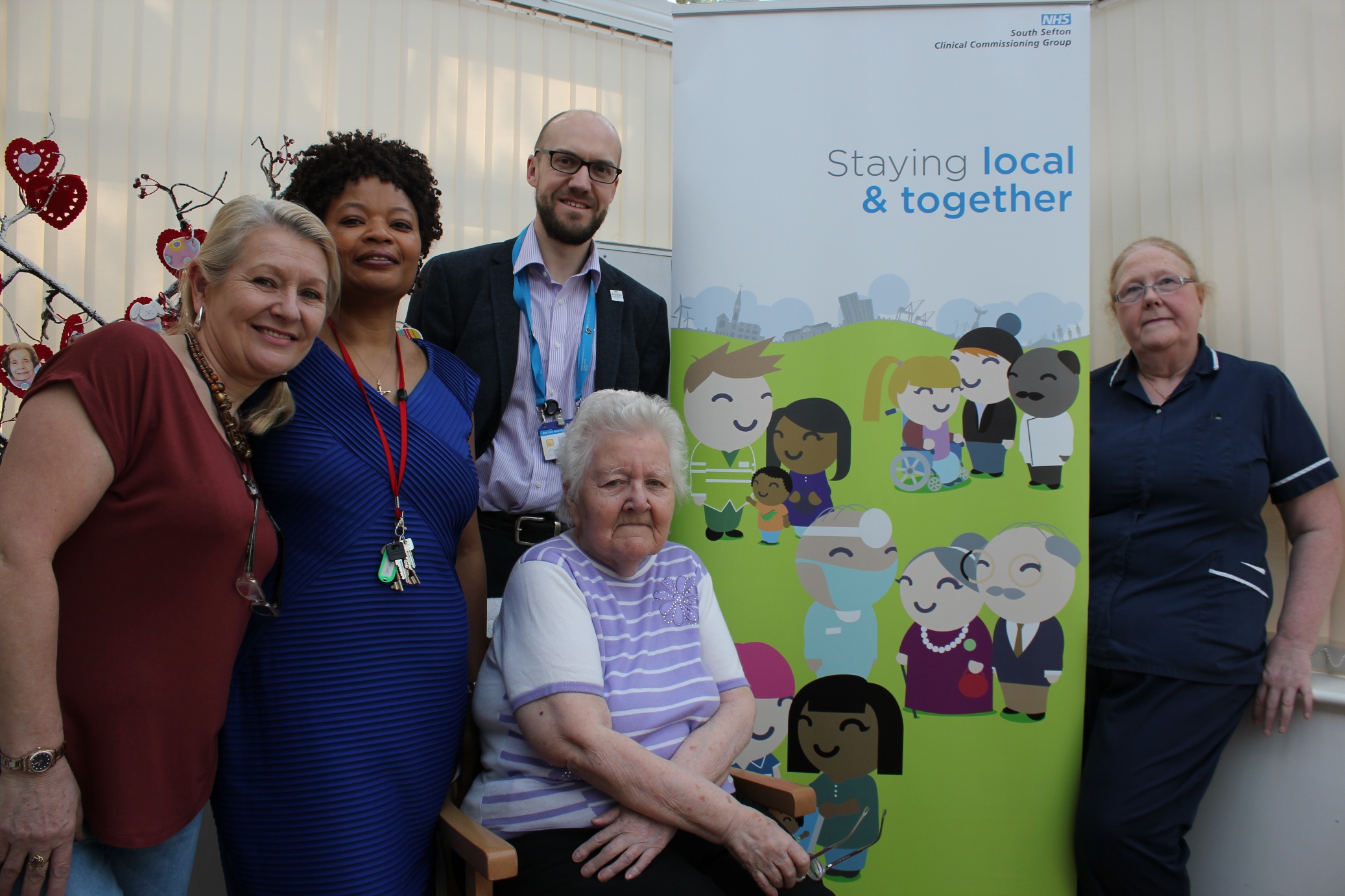CCG scheme to improve support in care homes
Thursday, May 12, 2016

A programme, launched by NHS South Sefton Clinical Commissioning Group (CCG), is the first of its kind in the North West to offer care homes a comprehensive package of support to look after their residents.
The Care Home Innovation Programme (CHIP) brings together several initiatives to improve the quality of care homes such as community matron visits, standardisation of protocols, a bi-monthly quality improvement collaborative meeting and training for care home staff.
Due to its success the programme has recently been highlighted in the newly published end of life thematic review by the Care Quality Commission (CQC) as an example of good practice.
Dr Peter Chamberlain, GP and lead clinician for strategy and innovation at NHS South Sefton CCG, said: “Our population in south Sefton is getting older at a much higher rate than the national average, which is why we’ve developed CHIP. The number of residents being sent in and out of hospital has always been a cause for concern as we know it’s not good for their mental or physical health. A huge factor of our training is to allow patients to be treated in the place they live to cause as little upset as possible.
“Bringing together the different elements of care into one program differentiates us from others and we are very proud of the CHIP initiative. The community matrons and our care home staff do a fantastic job and are highly trained in dealing with many situations. The regular collaborative meetings also work well and encourage integrated working to ensure that each resident receives the best care for them.”
An important element of CHIP is the televideo system which is now in most care homes in south Sefton. The use of televideo offers care home staff with a range of NHS services through a single point of contact, 24 hours a day, providing community based alternatives to going to A&E.
Chamberlain continues: “We are always looking to improve the programme and it’s fantastic that we are starting to see the results from the use of televideo in south Sefton. The aim of this is to prevent residents having to go into hospital when they don’t need to and more importantly improving the quality of experience for patients. With the right advice and by being able to see the patient through video the skilled team can manage most situations from Airedale NHS Foundation Trust.”
Bernadette Makaza Muzavazi, home manager at Orrell Grange nursing home in Bootle, is just one of the people who have a CHIP success story. She said: “In December one of our residents suddenly became critically ill becoming increasingly agitated and distressed as his breathing started to become laboured.
She said: “As soon as this was noticed, one of the staff quickly dialled Airedale. While they were talking to them, a senior carer completed the communication form and took all the physical observations, while one of the nurses was reassuring the resident and keeping an eye on him at all times.
“The practitioner asked us to take the televideo laptop to the resident’s room so she could see the resident. While this was all taking place, a paramedic was in attendance and took over doing all the physical observations including an electrocardiogram (ECG) on the patient’s heart. The ambulance crew arrived in 20 minutes in case the resident had to proceed to the hospital.
“As the resident was becoming more settled and the paramedic requested for a GP visit on site the ambulance crew was sent back. The GP visited and prescribed antibiotics and steroids. The resident made a full recovery and was treated in the comfort of his own familiar environment surrounded by familiar faces.
“Prior to CHIP and Orrell Grange using telemedicine, this would have been a typical 999 call with all the hospital drama. Research shows that hospital environment or change of environment has detrimental effects to elderly people and especially people who suffer from Dementia.
“We all had a group hug following this CHIP success story. It was a good job well done, professionally and efficiently.
“Thank you to the CHIP team for adding in the use of televideo and to Airedale for arranging all three services within a short space of time. We had a paramedic, ambulance crew and a GP in attendance within a short space of time. Well done Orrell Grange staff too, 90% of our staff are now confident and competent with using tele video through training and practice organised by the CCG.”
Peter Chamberlain at the CCG said: “Bernadette’s story is just one of the many we receive and it highlights the televideo element of CHIP which is only one aspect of the program. It is fantastic to see it all coming together and to hear that it’s working. The team here at the CCG has worked hard to combine the different initiatives and to roll them out to all our care homes. The training through the collaborative meetings and through Edge Hill University is invaluable for staff giving them more confidence when caring for residents. We are now starting to see the results and this is only one example.”





